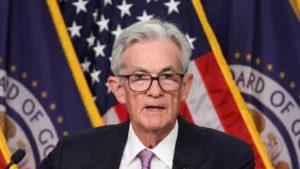
Russia Fires Nuclear-Capable Missile at Ukraine
Russia Fires Nuclear-Capable Missile at Ukraine
In a dangerous escalation of the ongoing war in Ukraine, Russia has launched a new nuclear-capable ballistic missile at Ukrainian targets. This move heightens global concerns about the potential for the conflict to spiral into a wider regional or even nuclear crisis. The missile, believed to be capable of carrying nuclear warheads, marks a troubling new phase in Russia’s military strategy, amplifying the tension between Moscow and the West.
New Ballistic Missile: A Major Threat
The missile fired by Russia is part of its latest advancements in nuclear-capable weaponry. Experts believe that this missile could be used to carry nuclear payloads, increasing the stakes in the already volatile conflict. While the missile’s exact specifications have not been fully disclosed, the launch is a clear signal of Russia’s ongoing military modernization efforts and its willingness to expand its use of advanced weaponry in the Ukraine conflict.
The new missile marks an evolution in Russia’s military capabilities. It’s designed for long-range strikes, meaning it could potentially reach targets deep within Ukraine and beyond. This raises serious concerns not just for Ukraine, but for the broader region, as the launch demonstrates Russia’s willingness to push the boundaries of conventional warfare. The missile’s nuclear capability has escalated fears of further nuclear escalation in the region.
Escalating Tensions Between Russia and the West
The launch of the missile has prompted immediate reactions from world leaders, especially those from NATO and the European Union. The West has already expressed concerns over Russia’s previous use of heavy artillery and advanced airstrike technologies, but the development of nuclear-capable missile systems adds an entirely new dimension to the crisis. Many are now worried that these escalations could lead to a significant miscalculation, potentially triggering a broader conflict.
Countries such as the United States and members of the European Union have been vocal in their condemnation of Russia’s actions, calling for increased sanctions and other measures to curb Russia’s aggressive behavior. The growing presence of nuclear-capable missiles in the region has prompted calls for stronger diplomatic efforts, alongside military deterrence, to prevent further escalation.
Global Reactions: Concerns Over Nuclear Proliferation
The launch has sent shockwaves through the global community, with many experts warning about the dangers of nuclear proliferation. The missile’s capability to carry nuclear warheads raises alarms not only for the immediate region but for the stability of international relations as a whole. Many countries, especially those in close proximity to Russia, are increasing their readiness in response to the new threat.
The proliferation of nuclear-capable missiles could pave the way for more countries to pursue similar weapons, undermining global arms control agreements. This situation is particularly concerning for NATO members, who are already on high alert due to the ongoing conflict. As the balance of power shifts with the new missile launch, the world is left grappling with how to respond effectively to prevent further escalation.
Ukraine’s Response to the Missile Launch
Ukrainian officials have condemned the missile launch, warning that Russia’s use of nuclear-capable weapons could have catastrophic consequences. Ukrainian President Volodymyr Zelensky has emphasized the need for continued international support to defend against Russian aggression, calling for more advanced weapons and military aid. The missile’s launch serves as a reminder of the ongoing threat that Russia poses not just to Ukraine, but to global security as a whole.
Zelensky’s government has appealed to the international community for increased assistance, including additional sanctions against Russia, stronger military support, and more diplomatic pressure. Ukraine’s ability to defend itself against such advanced weaponry is limited, making international aid all the more critical.
The Impact on International Diplomacy and Security
Russia’s latest missile launch has forced a rethinking of international security policies, especially among countries that are directly involved in the conflict or within Russia’s sphere of influence. The missile’s nuclear capabilities underscore the urgency of both nuclear nonproliferation and diplomatic intervention.
The United Nations and NATO have been called upon to take more decisive actions, both to deter further missile launches and to engage in broader peace talks. Some experts argue that Russia’s actions signal a growing unwillingness to engage in negotiations, opting instead to use military threats as a means of pressuring Ukraine and the West into concessions.
The Role of NATO and the United States
As a key player in global security, NATO and the United States are heavily invested in managing the situation. NATO has been bolstering its military presence in Eastern Europe, especially in countries that border Russia, as a deterrent against further aggression. U.S. officials have vowed to continue supporting Ukraine with advanced weaponry, including anti-missile systems, to counter Russia’s missile threats.
The U.S. has also expressed concerns over the potential consequences of further nuclear escalation. The Biden administration has indicated that it will continue to engage diplomatically with NATO allies to ensure that any response to Russia’s missile launches is both measured and effective.
What’s Next for the Conflict?
The firing of the nuclear-capable missile has changed the dynamic of the Ukraine conflict, introducing a greater risk of nuclear escalation. As world leaders scramble to assess the situation, the international community faces the difficult task of preventing further aggression while navigating the complex geopolitical landscape.
It remains unclear how Russia will respond to pressure from the West and whether diplomacy can be a viable solution. With the situation growing increasingly dire, the threat of broader conflict looms large. The world will be watching closely to see how global powers react in the coming days.
Conclusion: The Ongoing Threat of Nuclear Escalation
Russia’s launch of a nuclear-capable missile at Ukraine is a worrying sign of the escalating conflict in the region. The missile not only increases the threat to Ukraine but also raises concerns about the potential for nuclear escalation in the broader European and global context. As tensions continue to rise, the international community must remain vigilant in its efforts to prevent further aggression and to find diplomatic solutions to the crisis.
External Links:
- NATO’s Response to Russia
- United Nations Security Council on Ukraine
- U.S. Department of State – Russia’s Military Threat
FAQs
- What is a nuclear-capable missile?
A nuclear-capable missile is a ballistic missile that can carry nuclear warheads, potentially devastating large areas. - How did the international community react to Russia’s missile launch?
Global reactions include condemnation from NATO, the EU, and the United States, urging increased sanctions and military deterrence. - What is Russia’s military strategy with these new missiles?
Russia’s strategy involves expanding its nuclear arsenal to increase its leverage in the conflict with Ukraine and deter Western intervention. - How does this affect global security?
The missile launch exacerbates fears of nuclear proliferation and raises tensions worldwide, especially in neighboring countries. - What is Ukraine’s stance on this missile launch?
Ukraine condemns the launch and calls for more international support to counter Russia’s increasing military threats. - Can NATO prevent further missile launches by Russia?
NATO has been bolstering its presence in Eastern Europe, but preventing further missile launches depends on diplomatic and military responses. - What are the risks of nuclear escalation in Ukraine?
The launch of nuclear-capable missiles significantly raises the risk of a nuclear conflict, affecting global security. - How is the U.S. responding to the missile threat?
The U.S. is continuing to support Ukraine militarily and diplomatically while working with NATO to deter further escalation. - Will the missile launch lead to more sanctions on Russia?
Many expect new sanctions to be imposed on Russia as a response to the missile launch and its implications. - What can be done to prevent further nuclear escalation?
Diplomatic measures, increased military deterrence, and international pressure on Russia are critical to prevent further escalation.
Image Credit – AP


